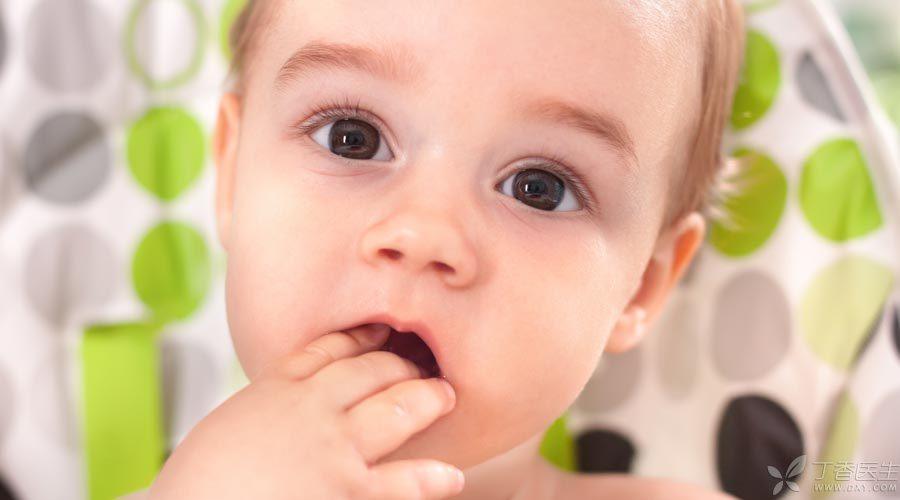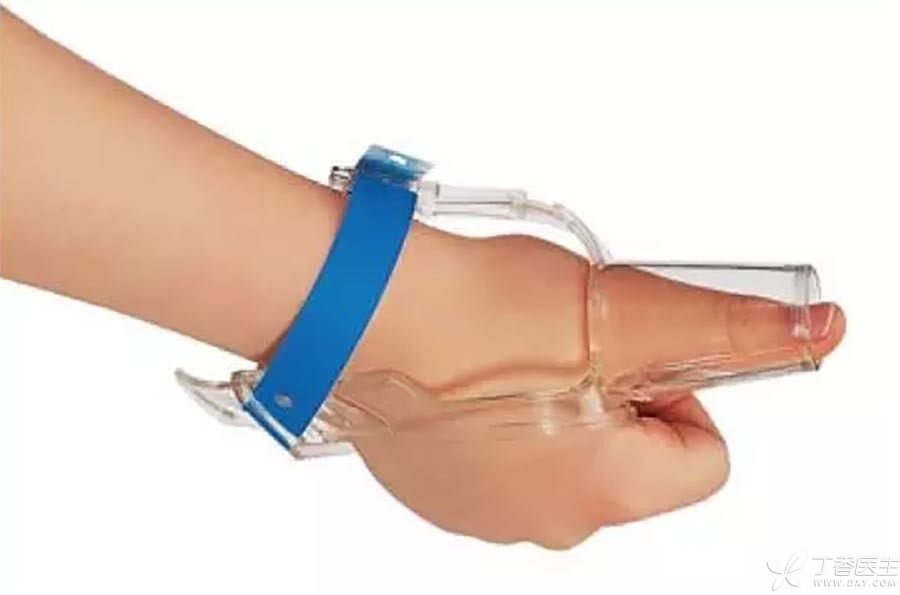
Many parents have consulted Dr. Clove and asked the baby about eating hands:
My children always eat their hands and cannot control themselves. Is it more harmful?
Heard that eating hands too seriously will make children ugly? Really?
In order to find out this problem clearly, clove mother consulted two experts to help everyone solve the problem of baby eating hands from the aspects of oral development and psychological development respectively.
Why do babies like to eat hands,
Teacher Chang Run, who has 8 years of independent garden management and teaching experience, said that from a psychological point of view, it is quite healthy for a baby to eat his hands. It is a sign that the baby becomes smarter and is the emotional need of the baby.
1. Baby’s hand eating belongs to human primitive reflex,
When the fetus is 8 months old, it is accompanied by sucking reflex, which can help the child to suck breast milk smoothly after birth. Therefore, some parents can see the child eating hands from B-ultrasound, but this is only an instinctive behavior, and the child still does not realize that he is eating hands or why he wants to eat hands.

2. Eating hands is also the exploration demand for growth.
For babies aged 4-7 months, the fine movements of their hands develop rapidly. At this stage, they like to explore external things through their hands and mouths. Eating hands can stimulate the baby’s oral cavity, promote its brain development and make the baby smarter.
3. Eating hands is also an act of self-protection.
Eating hands is an important means for children to comfort themselves and effectively relieve pressure before they can speak, which can prevent psychological trauma.
Although some children do not eat hands, they like to eat bottles, comfort pacifiers and bite quilts for the same reason.
There are also some children who subconsciously stimulate themselves because they are bored and eat their hands.
Babies eating hands for a long time will really affect their facial features.
Parents are nervous when they see their children eating their hands. Apart from hygiene problems, they are also worried about the impact of eating their hands on tooth development and the fear that their children will [grow crooked].
To this, Dr. He Jianliang gave the answer: Yes, long-term [eating hands] will affect the normal development of baby’s teeth and bones, but it depends on the age group.
We know that the baby starts to erupt the upper and lower incisors around the age of 1. Under normal circumstances, the upper and lower teeth can be contacted when the mouth is closed.
However, if the baby has the habit of eating hands (i.e. [sucking fingers]), the fingers are often placed between the front teeth, which will cause the teeth to protrude out over time and the upper and lower teeth to fail to bite (dentists call it [open occlusion]).
If the habit continues until the baby is 5-6 years old, the baby’s jaw bone development and normal occlusion will be permanently adversely affected.
If the child eats his hands for a longer time, it will also affect the changes of the upper and lower jaws and muscle morphology-it will gradually become ugly.
Of course, in addition to the disadvantages of [ugly], it may also affect children’s pronunciation and the function of teeth in cutting food.
If the baby likes to eat hands, the age of 4 is a key point in time and should be guided to give up in time.
How to help children quit eating hands?

In order to eat hands, I fought with my children every day. I beat and scolded them. It was useless…
I also wiped my finger with Huang Lian water and balsam pear water. The child was stubborn and ate while crying…
In order to give up eating hands, parents do everything they can, but teachers Chang Run and He Jianliang have the same view on how to help their children give up eating hands: positive guidance and discipline.
Children of different ages eat their hands. Parents can do this:
The first stage: Before the age of 2, the baby [eat as much as he likes]
Before the age of 2, it is the baby’s [oral desire period]. The baby is very curious about the outside world. What has to touch and chew it.
While observing their children’s hand eating, parents are advised to ignore their children’s hand eating behavior. Once it is pointed out that unconscious hand eating becomes conscious hand eating, it is even more difficult to fade away.
However, it is also a condition to eat if you want. The most important point is to clean your fingers!
The second stage: 2 ~ 4 years old, gradually guiding and intervening
Some children will learn other self-consolation methods between the ages of 2 and 4. They will use language, food or toys to relieve pressure, and the behavior of eating hands will disappear.
If parents do not intervene, the vast majority of children will stop eating their hands before and after entering primary school due to peer pressure.
However, there are also individual differences: introverted and sensitive children are easy to feel pressure, avoid expressing to others, and choose self-relieving methods such as eating hands. The behavior fades for a long time. Parents need to accept their children and be more patient.
What needs to be explained is that introversion or sensitivity is not a derogatory term here. These qualities make children good at analysis and self-protection.
If parents are very concerned about their children’s hands, they can take non-mandatory intervention:
- Divert the child’s attention: when he is bored and starts to eat his hand and hands over a toy he likes, the child will naturally stretch out his hand and take it, or propose to dance together, which will also make the eating hand stop naturally. In occasions where children need to wait for a long time, such as driving to an outing, you can prepare decompression toys full of buttons to prevent eating hands due to boredom. Avoid specific events that cause hand eating: if children are often timid and afraid, install night lights and stop educating children in the way of “scaring” to comfort children who are afraid of making mistakes [it doesn’t matter, I also made mistakes when I first learned, just practice more]; If the child is used to eating his hands to sleep, try to read by holding his mother’s hand and holding a plush bear instead.
If it is found that children are more and more fond of eating hands for a certain period of time, it is recommended to consult professionals and exclude some factors of nurturing the day after tomorrow.
Teacher Chang Run said, When discussing with children in kindergarten which behaviors are OK, Children shake their heads and frown at [angry] [sad] and other emotions, indicating that this is not OK. But in fact, negative and positive emotions are like battery poles and are indispensable to healthy people. Parents should pay attention to whether their children have entered the misunderstanding of emotional cognition, resulting in unnecessary psychological pressure and aggravating decompression behaviors such as eating hands.
Applying bitter ointment and wearing anti-eating finger covers, which may cause psychological burden to children, are not recommended for children under 4 years old.

In the third stage, after the age of 4, communication is the main [tool] supplemented.
For children over 4 years old, it is suggested to have sufficient communication and exchange with the children, so that the children can know why they can no longer eat their hands and give the children the opportunity to quit through their own efforts.
Usually, children will take the initiative to seek help from their parents when they fail to give up. At this time, they can tell them some options, such as wearing gloves and nail polish.
